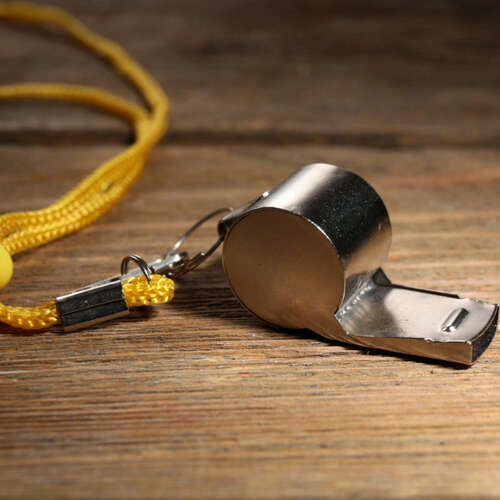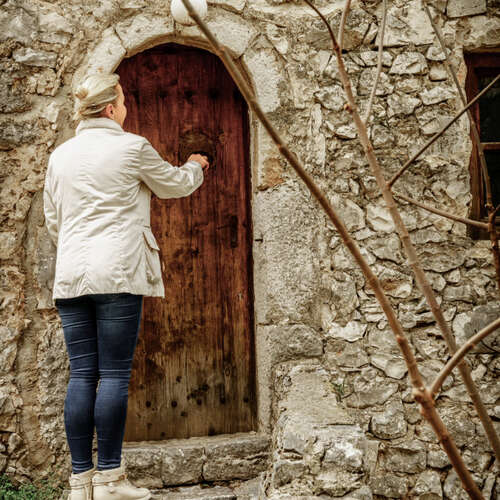
A cultural taboo is a behavior that’s frowned upon in other countries and should be avoided by travelers. Before you jetset off to an unfamiliar place, it’s best to know before you go and research local customs. After all, you don’t want to accidentally offend the locals who are welcoming you and showing you hospitality. Here are 14 odd cultural taboos that are normal here in the West, but considered rude in other places.
1. Blowing Your Nose in Public in Japan

Blowing your nose in public is considered a cultural taboo in Japan. It’s usually seen as disruptive and unhygienic. Instead, Japanese people often sniffle discreetly or excuse themselves to a restroom to blow their nose. It’s also common for people to wear face masks to avoid getting sick or passing their own germs to others.
2. Making the “OK” Gesture in Greece

Making the “OK” gesture with your hand, forming a circle with your thumb and index finger, is a big cultural taboo in Greece. It’s similar to giving someone the middle finger in Western cultures, so it’s best to avoid this gesture altogether. The same applies in both Spain and Brazil.
3. Touching Someone’s Head in Thailand

Touching someone’s head is considered disrespectful in Thailand. This is because the head is the most sacred part of the body in their culture. This taboo extends to even ruffling a child’s hair or patting someone on the head. While these gestures are signs of endearment in the West, they’re offensive in Thailand, so they’re best avoided.
4. Footwear Choices in Russia

Removing your shoes when entering someone’s home or certain businesses is a sign of respect in Russia. It’s believed that keeping outdoor shoes outside helps maintain a clean indoor environment. Taking off your shoes is often optional in the West, so make sure you don’t forget to kick them off before going inside. It’s possible that your host may offer you a pair of slippers to wear instead.
Restaurants and bars can also refuse to let you enter if you’re wearing shoes meant for sports. So it’s important to dress neatly and put on appropriate footwear before going out for the evening.
5. Using Your Left Hand to Eat in India

Using your left hand for eating or touching objects is a cultural taboo that’s considered unclean in India. Your left hand is traditionally associated with tasks like cleaning yourself after using the restroom. Therefore, it’s polite to use your right hand for eating and interacting with others.
6. Crossing Your Legs in Turkey

Crossing your legs while sitting, especially with the sole of your foot pointing towards someone, is considered disrespectful. It’s seen as showing the sole of your foot, which is considered unclean in Turkish culture.
7. Pointing With Your Finger in Tanzania

Pointing with your index finger is considered impolite, especially if you’re pointing at a person. You should also avoid calling someone over with an upwards palm, which is also rude in Tanzania. Instead, experts advise you to beckon someone by facing your palm downwards and pulling your fingers inwards.
8. PDA in Saudi Arabia

Overt public displays of affection like kissing are cultural taboos that are frowned upon in Saudi Arabia due to strict interpretations of Islamic law. Such behavior can be considered indecent and draw stares because it makes locals uncomfortable.
9. Ordering a Cappuccino After a Meal in Italy

Ordering a cappuccino after a meal is uncommon in Italy because it’s traditionally seen as a breakfast beverage. Italians typically drink cappuccino in the morning and switch to espresso or other beverages later in the day. It’s considered strange to order a cappuccino past 11 AM.
10. Chopstick Placement in South Korea

Sticking chopsticks upright into a bowl of rice resembles a ritual performed at funerals, so it’s considered l taboo and associated with death. Instead, chopsticks should be placed parallel to each other on a chopstick rest or across the top of the bowl.
11. Whistling Indoors in Slavic Cultures

Whistling indoors is believed to bring bad luck in Estonia and Latvia. According to superstition, doing so could cause the house to burn down. In Russia, Romania, and Lithuania, whistling indoors can supposedly bring on poverty, so you should refrain from doing so.
12. Tipping in Japan

Tipping isn’t part of the culture in Japan, and doing so can be considered rude because good service is simply standard and expected. However, workers who are part of the tourism industry may be more open to tips. If you feel compelled to reward someone, Business Insider suggests that you place the money in an envelope and hand it to them discreetly.
13. Saying Goodbye at the Door in Kenya

In Kenya, hosts won’t tell you goodbye at their door and send you off into the night, which is considered rude. Instead, they’ll accompany you for quite a while before heading back to their home. If you arrived on foot, it’s tradition to walk with you a quarter or even half of the distance you traveled.
14. Eating in Public During Ramadan

Eating in public during Ramadan in Muslim-majority countries like Morocco can be seen as disrespectful because it disregards the religious observance of fasting. It’s considerate to refrain from eating or drinking in public from dawn to dusk out of respect for those who are fasting. It’s best to eat behind closed doors during this time.
Respect Cultural Differences

Before traveling to an unfamiliar place, it’s always best to research cultural taboos so you don’t offend anyone. Although we don’t mean to hurt anyone’s feelings with common behaviors like crossing our legs or wearing shoes inside, they can be considered rude in other countries. Since we’re guests when we visit foreign nations, it’s respectful to follow local cultural norms and customs.
Read More
13 Tips for Solo Travelers That Will Change Your Trips Forever



